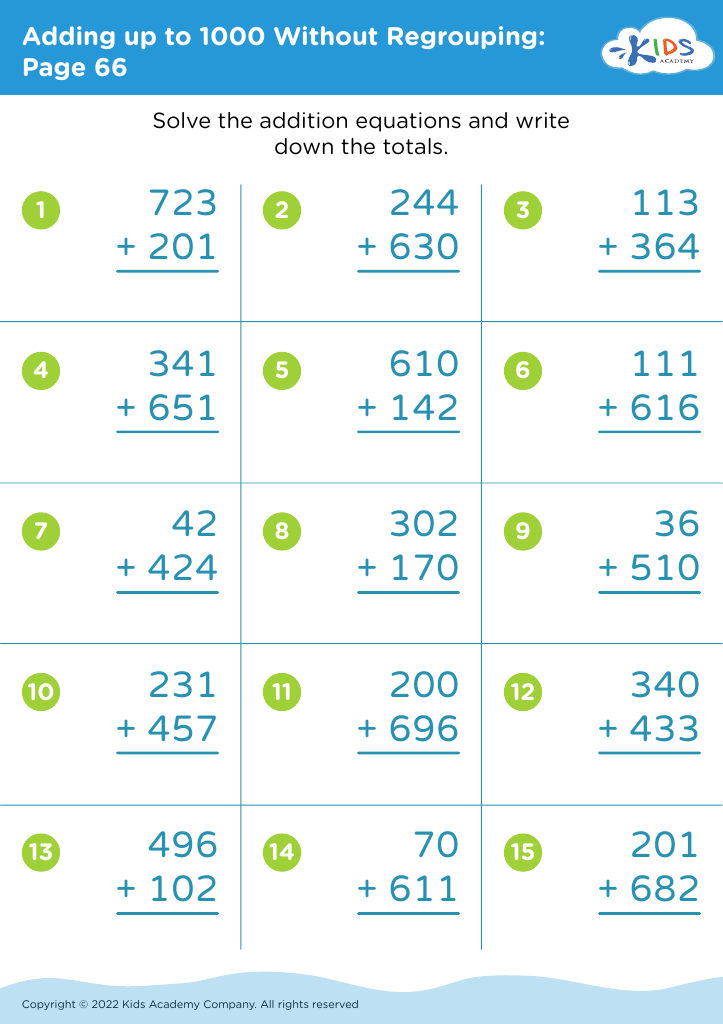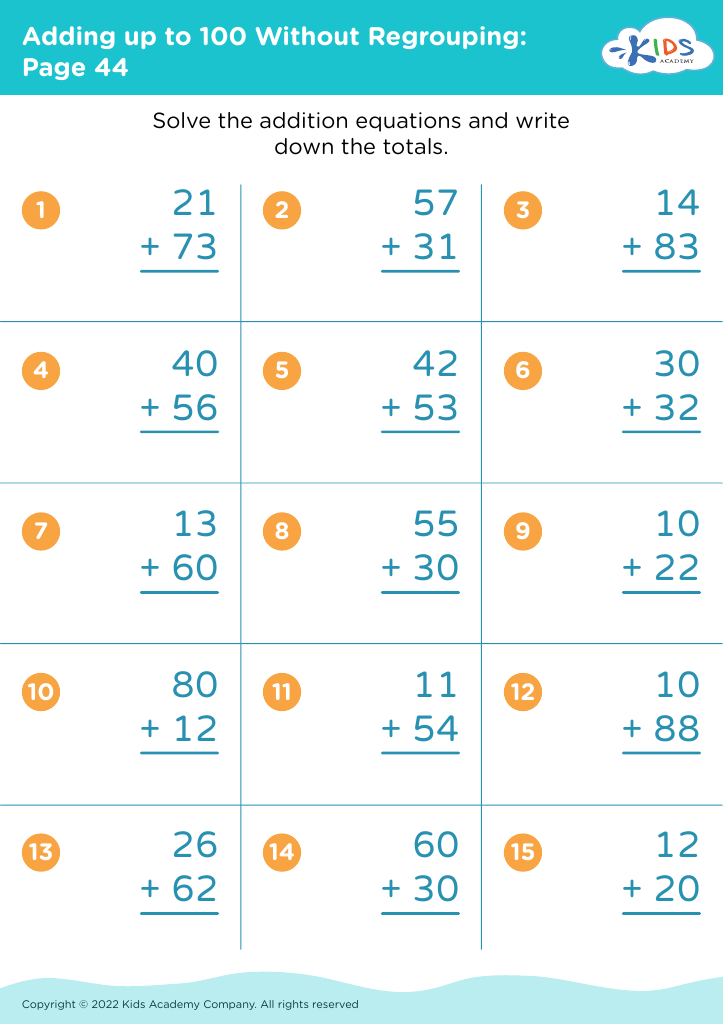Understand patterns Addition Worksheets for Ages 7-9
6 filtered results
-
From - To
Boost your child’s math skills with our engaging "Understand Patterns Addition Worksheets" designed specifically for ages 7-9. These printable worksheets from Kids Academy will help young learners grasp the foundations of addition through fun and interactive pattern-based exercises. By recognizing and extending numerical patterns, children will enhance their problem-solving abilities, critical thinking, and mathematical understanding. Ideal for both classroom and home learning, our worksheets offer a perfect blend of challenges and rewards, making math an enjoyable experience. Give your child a head start in math proficiency with our expertly crafted addition pattern activities.
Understanding patterns in addition is crucial for children ages 7-9 because it lays the foundation for more advanced mathematical concepts and problem-solving skills. Recognizing patterns helps young learners develop number sense, which is their ability to understand and work with numbers in flexible ways. When children see how numbers fit together through patterns, they start to comprehend the relationships between numbers, such as how adding two even numbers always results in an even number.
For instance, when kids see the pattern that adding 2 repeatedly (2, 4, 6, 8...) creates a sequence, they begin to predict outcomes and understand the cumulative effects of addition. This not only boosts their confidence but also makes math less intimidating and more enjoyable.
Patterns also aid in understanding properties of operations, like the commutative property (e.g., 3 + 5 is the same as 5 + 3). When students internalize these concepts, they can tackle more complex arithmetic problems more easily, as they won't be stumbling over basic number manipulation.
Moreover, the ability to recognize and use patterns is a critical skill that extends beyond math; it's a cognitive tool that helps in understanding science, language, and even everyday activities. Therefore, parents and teachers should care about fostering an understanding of addition patterns to ensure a strong mathematical foundation and to enhance overall cognitive development.























